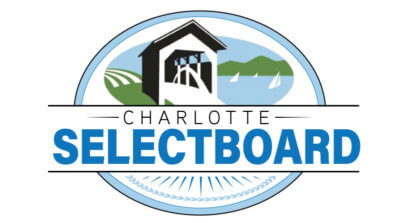Push still on for inclusion declaration addition to ballot
Despite at least one board member’s disappointment, the inclusion declaration working group was disbanded after the selectboard’s Dec. 16 meeting.
Board member Frank Tenney questioned whether the board had to accept the working group’s request to be dissolved, but finally relented when fellow board member and chair of the inclusion working group Natalie Kanner pointed out that the board’s own instructions for the group included a provision that the group would disband if it came to an impasse.
“The members did not have a majority in favor of anything, actually,” Kanner said. There was not a majority in favor of writing a town inclusion declaration or not having a declaration.
“We had three members of the working group. Each member voted for one of the three options,” Kanner said.
One option the selectboard presented to the inclusion declaration working group was to recommend that the selectboard put the existing statement on the Town Meeting Day ballot for residents to decide, another was recommending that the town draft its own inclusivity statement and the third option was to not make any recommendation to the selectboard.
The existing inclusion declaration unamended by Charlotte is:
“The town of Charlotte condemns racism and welcomes all persons, regardless of race, color, religion, national origin, sex, sexual orientation, gender identity and expression, age, disability, or socioeconomic status, and wants everyone to feel safe and welcome in our community.
“As a town, we formally condemn all discrimination in all of its forms, commit to fair and equal treatment of everyone in our community, and will strive to ensure all of our actions, policies and operating procedures reflect this commitment.
“The town of Charlotte has and will continue to be a place where individuals can live freely and express their opinions.”
Tenney said he had hoped the inclusivity working group would come back to the selectboard with options for it to consider. This didn’t happen.
But the Declaration of Inclusion issue is not done.
Nina Regan was one of the three members of the now defunct inclusion declaration working group. She supported recommending that the selectboard put the declaration on the town ballot, and is going forward as part of a group which may gather signatures for a petition requiring the inclusion declaration to be included on the ballot.
However, Regan has requested that the selectboard just go ahead and approve the inclusion declaration, or if not, that they vote to have it added to the ballot and let residents decide. If either of these votes is passed by the selectboard at its meeting this Monday, Jan. 13, there will be no need to collect signatures for a petition.
But Jan. 13 is the deadline to submit petitions to have articles added to the ballot for this year’s Town Meeting Day, so a petition would have to be submitted that day and couldn’t wait until the selectboard meeting that night to be included on this year’s ballot. Town Meeting will be on Saturday, March 1, at Charlotte Central School.
The inclusion declaration in Vermont originated in Rutland County in 2020 with a group of volunteers who wanted to make Vermont the most inclusive state in the United States.
The most recent tally is that 159 of Vermont’s 247 towns have passed the declaration of inclusion, said Al Wakefield, who is one of the five Rutland volunteers working to get it passed. That means that almost 65 percent of the state’s towns have passed it or that 79 percent of the population lives in a town that has endorsed it.
He said Charlotte is the only town in Chittenden County that has not adopted it.
When the inclusion declaration was first proposed at a selectboard meeting a couple of years ago, board member Lewis Mudge had hoped it would be passed then and that Charlotte would be one of the first towns in the state to embrace the declaration.
In response to allegations at selectboard meetings that “if you read between the lines” you will find that the declaration would bind the town to other actions, Wakefield said. “There’s nothing in what we have said or done which indicates that we’re talking about development in any kind of way. I think we’re talking about really the best of what America represents, in terms of welcoming people to our communities.”
Wakefield said that support among Charlotte residents for adopting the declaration is very high: “There’s as active a group of people supporting this declaration as any community across the state.”
Another article petition
Another petition was circulated in town to have an article added to the ballot that would restore to residents the right to vote on land-use regulation changes.
Karen Frost, who has been working on this effort, said when they submitted their petition to town clerk Marry Mead they had 255 signatures, more than enough to have the measure added to the ballot.
Related Stories
Popular Stories
If you enjoy The Charlotte News, please consider making a donation. Your gift will help us produce more stories like this. The majority of our budget comes from charitable contributions. Your gift helps sustain The Charlotte News, keeping it a free service for everyone in town. Thank you.
Andrew Zehner, Board Chair




